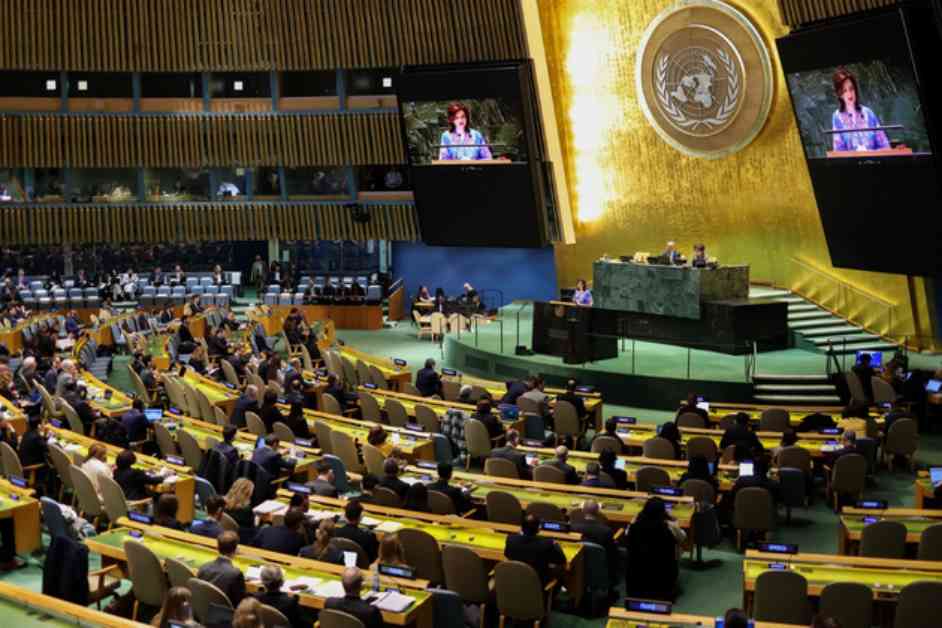The United Nations recently gathered to address the ongoing conflict in Ukraine, with draft resolutions and amendments reflecting the world’s stance on Russia’s invasion as it enters its fourth year. Although these resolutions are not legally binding, they serve as a symbolic representation of the international community’s position on the war. The US draft resolution, which was eventually adopted after accepting European amendments, garnered 93 votes in favor, eight against, and 73 abstentions. Russia voted against the adoption, while the US abstained, showcasing the divisive nature of the discussion.
US Proposal and European Opposition
Last Friday, the United States put forth a UN resolution condemning Russia’s invasion of Ukraine, omitting any reference to the specific territories occupied by Russia. This move faced opposition from Ukraine and various European nations, leading them to propose a rival draft resolution. European countries also suggested multiple amendments to the US draft to highlight Moscow’s involvement and emphasize Ukraine’s territorial integrity.
The US draft resolution, known as ES-11/L.11, initially expressed condolences for lives lost in the conflict, reiterated the UN’s commitment to maintaining international peace and security, and urged a swift end to the conflict for a lasting peace between Ukraine and Russia. During a speech at the UN, the US representative emphasized the urgency of ending Russia’s invasion through all available means, indicating a firm stance on the matter.
In response, Europe presented a competing draft resolution, ES-11/L.10, which received 93 favorable votes, 18 against, and 65 abstentions. This version delved deeper into the need for a comprehensive, just, and lasting peace in Ukraine, focusing on human rights protection and territorial sovereignty in light of Russia’s actions. Additionally, European countries proposed amendments to the US draft, all of which were accepted during the assembly.
During the proceedings, several amendments were brought forward for consideration. One such amendment, A/ES-11/L.13, replaced “the Russian Federation-Ukraine conflict” with “the full-scale invasion of Ukraine by the Russian Federation,” ultimately being adopted with 60 in favor, 18 against, and 81 abstentions. Another amendment, A/ES-11/L.14, reaffirmed a commitment to Ukraine’s sovereignty, independence, unity, and territorial integrity within its recognized borders, receiving 79 favorable votes, 16 against, and 67 abstentions.
Moreover, Russia submitted an amendment to the US draft resolution, proposing the inclusion of “including by addressing its root causes” after “a swift end to the conflict” in the operative paragraph. However, this amendment failed to garner sufficient support, with only 31 in favor, 71 against, and 59 abstentions. This rejection highlighted the differing perspectives within the assembly regarding the conflict and its resolution.
As the story continues to develop, stay tuned for updates and further insights into this critical issue.
Leo Chiu, a seasoned news reporter based in Eastern Europe, brings a unique perspective to this geopolitical discussion. With a keen interest in global affairs and a commitment to uncovering the human stories behind the headlines, Chiu’s reporting sheds light on the complexities of international relations and the impact of conflicts on individuals worldwide.

















